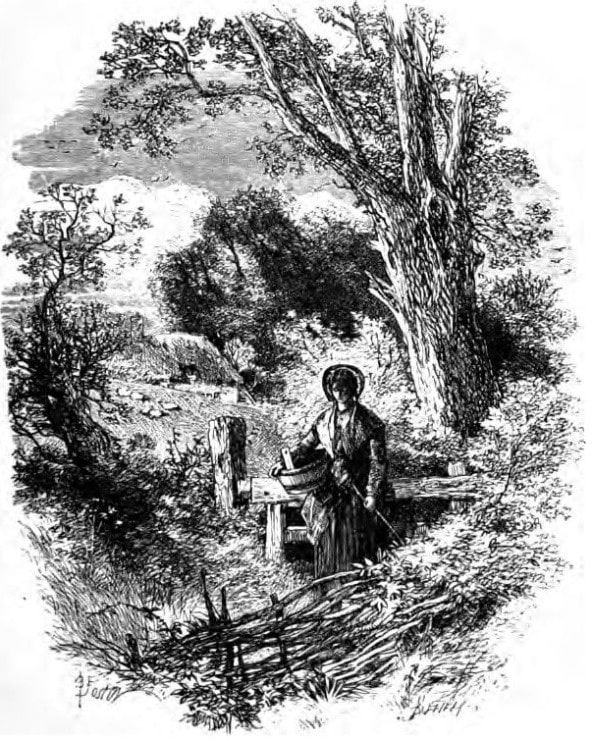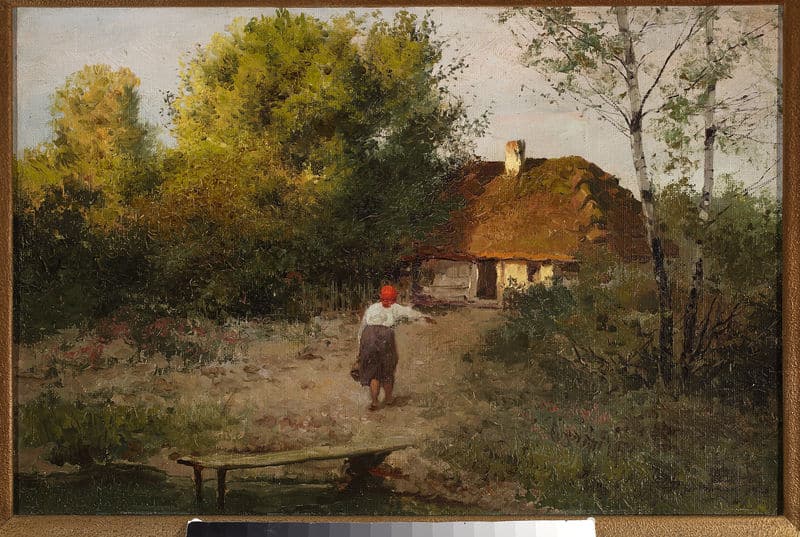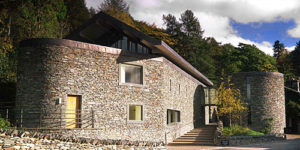< Return to all Wordsworth poems
The Reverie of Poor Susan
At the corner of Wood Street, when daylight appears,
Hangs a Thrush that sings loud, it has sung for three years:
Poor Susan has passed by the spot, and has heard
In the silence of morning the song of the Bird.
‘Tis a note of enchantment; what ails her? She sees
A mountain ascending, a vision of trees;
Bright volumes of vapour through Lothbury glide,
And a river flows on through the vale of Cheapside.
Green pastures she views in the midst of the dale,
Down which she so often has tripped with her pail;
And a single small cottage, a nest like a dove’s,
The one only dwelling on earth that she loves.
She looks, and her heart is in heaven: but they fade,
The mist and the river, the hill and the shade:
The stream will not flow, and the hill will not rise,
And the colours have all passed away from her eyes!
—William Wordsworth
Enjoy Artistic Representations of “The Reverie of Poor Susan” by William Wordsworth

Birket Foster’s illustration of Wordsworth’s Poor Susan, engraved by the Dalziel Brothers, 1874.

Peasant woman in front of a cottage by Józef Rapacki, 1920.
Listen to these Readings of “The Reverie of Poor Susan”
Listen to these Musical Interpretations of “The Reverie of Poor Susan” by William Wordsworth
About William Wordsworth
William Wordsworth, an English poet born in 1770, is credited with having a strong impact on the poetry of his time. He worked with Samuel Taylor Coleridge to publish a collection, Lyrical Ballads, which includes poems believed to be among the most influential in Western literature. With this publication, the two helped initiate English literature’s Romantic Age.

Jerwood Centre at the Wordsworth Trust in Grasmere
Wordsworth also worked to increase the accessibility of poetry, encouraging the use of more common language, and promoting the virtues of lyric poetry.
While in college, Wordsworth went on a walking tour of England and lived for a time in France, where he was greatly impacted by the French Revolution. His earliest work was published in 1793.
His most famous work, The Prelude, was published by his widow in 1850. He worked on the semi-autobiographical poem throughout much of his life, never quite satisfied to publish it.
Wordsworth served as England’s Poet Laureate from 1843 until he died in 1850.